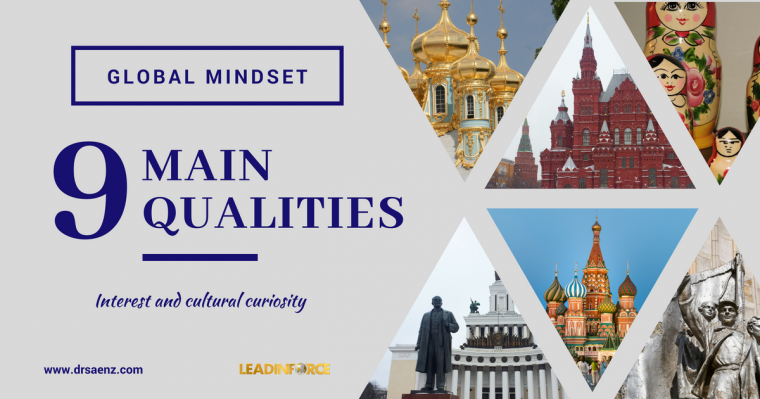One of the events that showcase a great amount of diversity and cultures is the World Cup. Every 4 years, 32 nations compete to become the best soccer team in the world and one country hosts the event. This year the host is Russia, and they are welcoming more than 1 million visitors from all over the world, according to event organizers.

The eyes of the planet turn towards this country. All of us have been able to learn a lot about the host country, most particularly those who are interested and curious about other cultures.
Are you interested in other cultures?
In today’s globalized economy, leaders must understand the global business environment. As I mentioned in my previous blog, a global leader must approach leadership differently. Furthermore, organizations that embrace a global culture and develop that kind of mentality within their teams, achieve better results.
This kind of approach requires developing a concrete and practical global mindset. Its benefits are numerous; both for the leader and for the organization and this can be achieved when an interest and curiosity in other cultures are present.
How can you become a global leader by learning about other cultures?
Tourists in Russia, as well as Soccer World Cup fans probably know by now that this country is more than the St. Basil’s Cathedral, the Red Square in Moscow, the wood dolls known as Matryoshkas, and vodka. I am sure that many have discovered way more about its people, economy, food, and beautiful land.
Understanding the culture of a person, team, or organization is what gives a competitive advantage to a leader and what allows him to effectively influence others.
Developing an interest in and curiosity about other cultures gives many personal and professional benefits such as:
- A deep knowledge of the global business environment, industry and business value chain
- An ability to learn and understand at the international level
- Acceptance of diversity and the fact that we are different
- The capacity to break down barriers and overcome stereotypes
- An improved perspective on better business practices
- Becoming the kind of role model that inspires others to grow as global leaders
- The opportunity to Increase your curiosity level thus your ability to innovate, explore, and expand
- The chance to raise your competence to create and develop successful teams
And many more! How can you start increasing your interest and curiosity in new cultures?
Just two easy steps:
- First, make a decision to develop your global mindset.
- Then, select a different culture than your own and start learning about it.
Be intentional when selecting it and make sure it will benefit your current goals since it could be the culture of a customer, of a partner, a coworker, a teammate, or another organization.
Keep in mind that a culture is a group of behaviors that start at the personal level.
If you want to minimize misunderstandings, maximize productivity and results by developing your global mindset. Let’s have a conversation. You can start achieving better results today! Let’s talk about how LEADINFORCE can benefit you, your team and your company.
Question: Which new culture do you want to explore?
